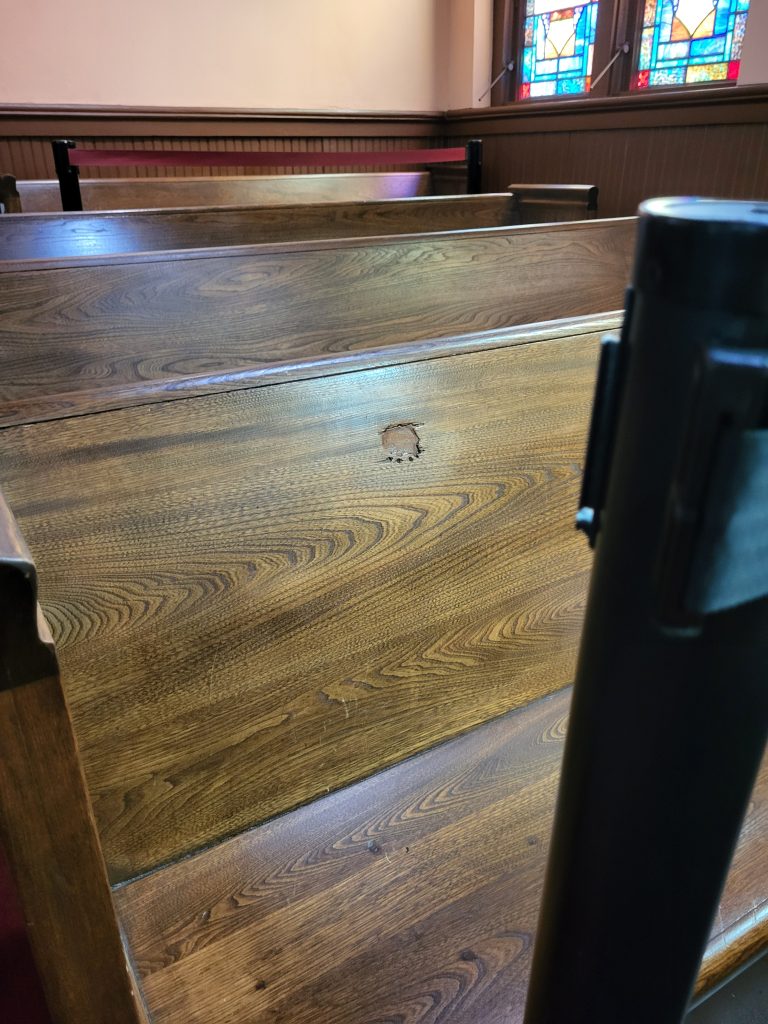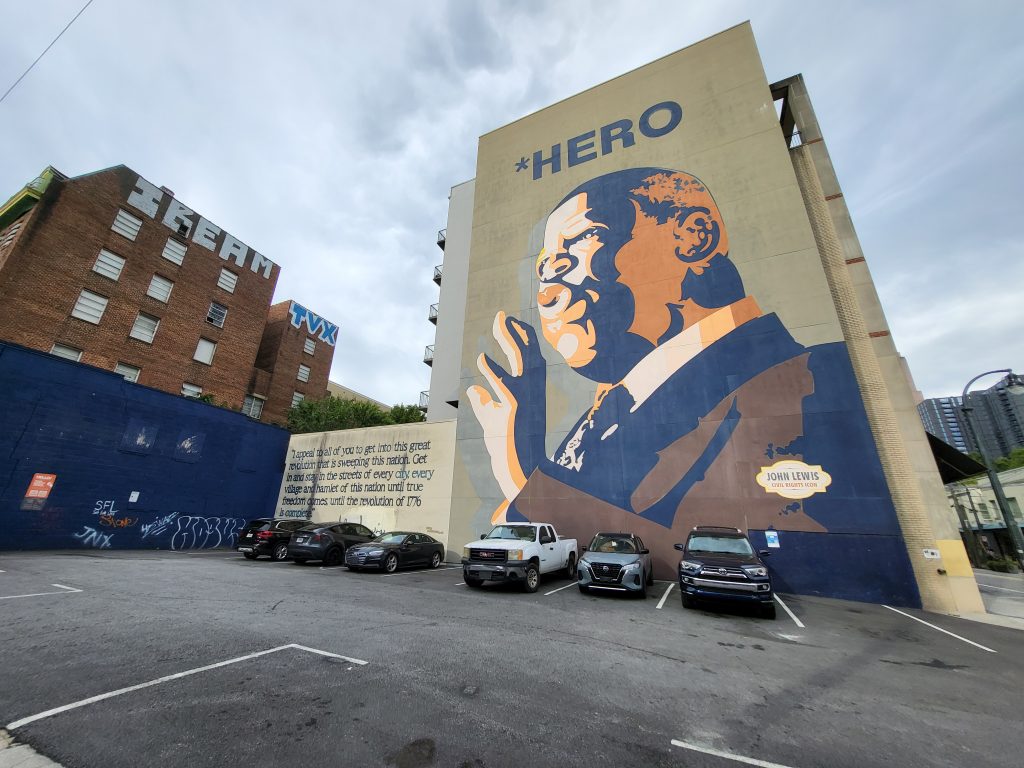
by Rev. Hillary Kimsey
Day 1: Atlanta: The King Center, Sweet Auburn, the Absalom Jones Center, Church of the Incarnation, Dr. Catherine Meeks
In the past several weeks, I have heard the same question asked of two powerful and prophetic Black Episcopalians: Presiding Bishop Michael Curry and Dr. Catherine Meeks. During the weekend of celebrations for Bishop Phil Labelle’s consecration, the question was posed to Presiding Bishop Curry and today, on our Civil Rights pilgrimage, we asked Dr. Meeks the same question: What are the church’s biggest idols right now and what is the antidote?
Two weeks ago, PB Curry pondered the question for a breath or two. He answered, “Survival.”
Today, Dr. Meeks also paused to consider before offering her answer: “Power.”
At least once a week, if not more, the same article will appear on my social media feeds. Well, different articles written by various people put out by various publications, but each will contain the same effusive hand-wringing, bemoaning the decline of church attendance or delivering a grim prognosis on the institution’s odds of survival. I’ve read them enough times that I don’t bother anymore. I’ve read them enough that I’m convinced that Bishop Curry and Dr. Meeks are both correct in their assessments of our idols. We fret about our survival and salivate over power because we are afraid to the point of paralysis. We are terrified of irrelevance and yet we also fear to change. We preach against the sins of empire yet we cling desperately to its power.

One of the reasons anti-racism work can be so difficult for white people is how quickly we can get stuck in our shame. Today we visited historic Ebenezer Baptist Church where Dr. Martin Luther King, Jr. once preached, and we listened to the park ranger tell stories from the King family’s history. One of those stories was about Martin Luther King, Sr (also called “Daddy” King). MLK Senior survived the death of both his sons and eventually his wife, Alberta Williams King, who was murdered in one of those very pews. There is a mark from the bullet’s ricochet on another pew we passed on the way out. Tears came as I imagined the horror of that moment decades ago and reflected on the horror of the massacre at Charleston’s Mother Emmanuel AME Church, just a handful of years ago.
And I felt ashamed because I don’t remember ever learning that Alberta Williams King was assassinated.

Oh, that feeling of shock and shame is a familiar one. From my undergraduate years all the way to today, I have over and over learned shocking facts about American history that were not included in my public education growing up, either by oversight or, more than likely, by deliberate intention. After all, how can we keep perpetuating the myth of American exceptionalism if we tell the whole sordid truth?
Dr. Meeks emphasized to us today that telling the truth is the only way forward. She referred to the Jungian concept of the shadow parts of ourselves, urging us to confront the hidden parts of our own history, our own personalities and to tell the truth about them. White people—myself included!—often want people to tell us what to do so we can escape this paralyzing sense of shame. What steps can I take? Who should I march with, who should I boycott? What should I say or avoid saying? And sometimes we find ourselves tiptoeing around other white people when we try to tell the truth about racism. We don’t want to offend people, because maybe then they will shut down or lash out.

But racism is offensive, y’all. There’s no sugarcoating centuries of oppression, both the blatantly violent kind and the insidious systemic kind.
I recently attended the Nevertheless She Preached conference in Austin, where one of the speakers, another powerful black scholar named Lisa Sharon Harper, reminded us that deep down, we all desperately want to feel safe. Like Bishop Curry reminded us, we want to survive. As individuals, families, and as the institution called the Episcopal Church. But sometimes, in effort to feel safe, we resist change, we blind ourselves to the truth, and we desperately cling to power and status quo. Harper said, “None of us become safer by clinging to power. We become safer by loving our neighbors and taking care of each other.”

Bishop Curry’s encouragement was similar as he spoke about the church idolizing survival. “We have to stop focusing on keeping the institution alive and start focusing on following the teachings of Jesus of Nazareth. Love God. Love your neighbor. Love yourself.”
And today, Dr. Meeks sent the message home. What can we do to dismantle structures and deconstruct centuries of oppression? “Confront your shadow. Tell the truth. We have to decide who we are going to be. Are we going to be a church where people can stay nice and comfortable and never feel challenged? Or are we going to be a church that follows Jesus?”
Speaking of Jesus, Paul’s second letter to the Corinthians says if anyone is Christ, they are a new creation; the old has gone, and the new has come. We can’t cling to how things used to be or the way we’ve always done it or the comfortable illusions we let ourselves hide in. Ignorance may feel blissful sometimes, but it is a prison of our own making. We have to tell the truth. Only the truth can set us all free.
My favorite prayer in the whole BCP is the one we pray on Good Friday and at ordinations: “O God of unchangeable power and eternal light….let the whole world see and know that thing which were cast down are being raised up and things which had grown old are being made new, and all things are being brought to their perfection by him through whom all things were made: your Son, Jesus Christ our Lord.” May it be so! May we be made new. Amen.

